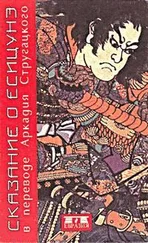Unknown - Deportation
Здесь есть возможность читать онлайн «Unknown - Deportation» весь текст электронной книги совершенно бесплатно (целиком полную версию без сокращений). В некоторых случаях можно слушать аудио, скачать через торрент в формате fb2 и присутствует краткое содержание. Жанр: Старинная литература, на английском языке. Описание произведения, (предисловие) а так же отзывы посетителей доступны на портале библиотеки ЛибКат.
- Название:Deportation
- Автор:
- Жанр:
- Год:неизвестен
- ISBN:нет данных
- Рейтинг книги:3 / 5. Голосов: 1
-
Избранное:Добавить в избранное
- Отзывы:
-
Ваша оценка:
- 60
- 1
- 2
- 3
- 4
- 5
Deportation: краткое содержание, описание и аннотация
Предлагаем к чтению аннотацию, описание, краткое содержание или предисловие (зависит от того, что написал сам автор книги «Deportation»). Если вы не нашли необходимую информацию о книге — напишите в комментариях, мы постараемся отыскать её.
Deportation — читать онлайн бесплатно полную книгу (весь текст) целиком
Ниже представлен текст книги, разбитый по страницам. Система сохранения места последней прочитанной страницы, позволяет с удобством читать онлайн бесплатно книгу «Deportation», без необходимости каждый раз заново искать на чём Вы остановились. Поставьте закладку, и сможете в любой момент перейти на страницу, на которой закончили чтение.
Интервал:
Закладка:
— Yes, I know, I have an appointment with sen Argenti.
Graendal smiled.
— I bet she will invite you at one o'clock, at the rock sports club on Akorera island.
— How did you guess?
— Four months are enough to learn some of your colleagues’ habits.
— I see. So, what can you say about the movie? Have you watched it?
— I did. Eight true stories about sexual experiences of students. In the style of Romeo and Juliet. The common theme is: fundamentalist families are the source of the tragedy. A woman throws sulfuric acid in the face of a teenage girl, because she is "a whore" and "seduced" her son. A man shoots an eighth-grader who "corrupted the innocence" of his daughter. Another man throws a homemade bomb at teens having a nudist picnic, because they "incline classmates to sin". And so on.
— Do you agree, sen Vlkov, that the film excites hatred towards patriarchal families?
— Rather to their way of life. Anyway, it does not matter. The director has the right to show the problems of society as he sees them. If he had called for physical violence towards these families, he would have violated the Magna Carta, but he only gave a moral evaluation.
The reporter thoughtfully rolled the glass in his hand and finished the drink. It was timely because Laysha brought a large Chinese teapot with four translucent porcelain cups.
— Thank you so much, sen Laysha.
— Go on, boys, it's all very interesting.
— I anticipate your next question, sen Sekar — Graendal continued — what if this moral evaluation is used as a moral justification for terror against a particular style of life, family life, religion, beliefs? Right?
— Well, yes. I mean, these were the Vatican representative’s arguments.
— Then I'll answer you the same as I told him. Magna Carta prohibits enforcement of moral choice. Anybody has the right to bring moral terror to any group of people whose practices are unacceptable to free people. This group has the right to do the same to us. The government is not allowed to intervene, and is only obliged to stop physical violence and threats of violence. This is the rule of non-interference in private life, right?
The reporter smiled and nodded.
— Of course. But, as we remember, Abu Salih had a counter-argument: the Magna Carta teaches ethical nihilism. What freedom of moral choice can you talk about, if one of the ethical teachings is proclaimed supreme law and is upheld by governmental coercion?
— My answer to him was long, to you I’ll reply briefly and clearly. Everyone has their property rights, agree?
— Yes. But what ...
— Is this camera your property?
— Yeah, why?
Graendal winked at him, took the camera off the table and put it in his lap.
— Now I took it and it’s my property. Any objections?
— Why is it yours, sen Vlkov?
— Well, because here I have it as you can see.
— But you have it because you took it from me, — objected Sekar.
— Then you can call the police — stated Graendal — Irji, please play a policeman for us.
4. Irji Vlkov, a Meganesian schoolboy
The boy wiped cream from his face, pointed his index finger at Graendal and said in a stern voice:
— You're under arrest for robbery! Return the camera to its legal owner and follow me!
Graendal quickly returned the camera to the table, raised his hands up and said.
— You see, sen Sekar, what is the difference between the possession of own and stranger’s property? Same goes with a moral choice. It belongs to a person, and the person may take it whichever way he chooses, as he wants and when he wants.
— In particular, choose in favor of patriarchal morality.
Graendal nodded vigorously.
— Yes. But only for themselves and not for the neighbor. If a person forces morality on their neighbor, they are appropriating someone else's rights away . As I did with your camera. No one would call the ban of taking things from others is “nihilistic attitude to possession”, right? It’s the opposite: it protects the ownership rights. The Magna Carta provides the same protection for moral choices. Where do you see nihilism in that?
— Um — said the reporter thoughtfully — this is clear, but there is a significant difference. In contrast to the freedom of ownership, moral freedom is limited by social norms. I mean, the ban on socially dangerous acts such as robbery and others.
— No difference — Graendal responded calmly — same rules apply to owning things which would be a threat to everybody if they were in private hands. People agreed that individuals should not own atomic bombs or national power grids.
— There are countries where the national grid is in private hands.
— Yes, and in these countries they plunder with impunity those who own the grid. Try to punish them, they will turn off the electricity, end of story.
— Aha — said the reporter — let me try to phrase it. Hence, the ability to impose their morality on others, is as dangerous as private possession of an atomic bomb?
— Gren, you did not say that — intervened Laysha vigilantly, while pouring the tea.
— I know, my dear. However, even though these are sen Sekar’s words, they sound right to me.
— I just wanted to get to the question of capital punishment — the reporter continued — in fact, the patriarchal-minded citizens only broke a few windows in several shops, clubs and cinemas. The sentence for that would typically be a fine and a short prison term?
— That's right — confirmed Graendal — but their crime was not misdemeanor, but rather an attempt to intimidate the citizens and the government, and to force the beliefs of their social group. Even a child knows how is that called.
Irji pulled away from the tea and blurted out.
— It's called "tyranny", and is punishable by the supreme measure of humanitarian self-defense — he illustrated his words by unequivocal gesture of tying an imaginary rope around the neck.
— Wow! — amazed Sekar — where is this knowledge from?
— As if you didn’t learn it at school — it was the boy’s turn to be astonished.
The reporter scratched his stubbly chin thoughtfully.
— I did not know they teach this in school.
— And rightly so — intervened Laysha — we’ve had enough of all sorts of higher interests of the nation, and our children don’t have to repeat the same mistakes.
— Fortunately, Magna Carta allows us to replace the death penalty with deportation — defused the situation Graendal — I would not want to impose nineteen life sentences.
— And if there were no such alternative as deportation? — Asked the reporter.
— This alternative was invented by the ancient Greeks. Who knows how history would go if they didn’t? We live in this reality, not in a fictional world.
Sekar smiled and spread his hands.
— All right, sen Vlkov, let's get back to reality. How do you comment on the statement by the Human Rights Watch that the Confederation created, I quote from memory, "a situation of total mockery for the ideals of religious and cultural communities whose morals and whose views differ from the government’s"?
— Sure, let’s go back to reality — agreed Graendal — let's imagine going to one of the larger islands nearby, say, Nuku'alofa. And let’s look at the first open-air cafe on the shore. What will we see?
— Nothing special — suggested the reporter — people eating, drinking, and...
— We'll see — interrupted Graendal — wildly different people, behaving according to their tastes, but at the same time complying with the necessary minimum of common rules. Someone can be there in an evening dress, another in a bathing suit, someone in a lava-lava, and maybe even naked. It is a private matter. But nobody has the right to break furniture or attack others, and everyone has to pay for what they eat and drink. Right?
Читать дальшеИнтервал:
Закладка:
Похожие книги на «Deportation»
Представляем Вашему вниманию похожие книги на «Deportation» списком для выбора. Мы отобрали схожую по названию и смыслу литературу в надежде предоставить читателям больше вариантов отыскать новые, интересные, ещё непрочитанные произведения.
Обсуждение, отзывы о книге «Deportation» и просто собственные мнения читателей. Оставьте ваши комментарии, напишите, что Вы думаете о произведении, его смысле или главных героях. Укажите что конкретно понравилось, а что нет, и почему Вы так считаете.





